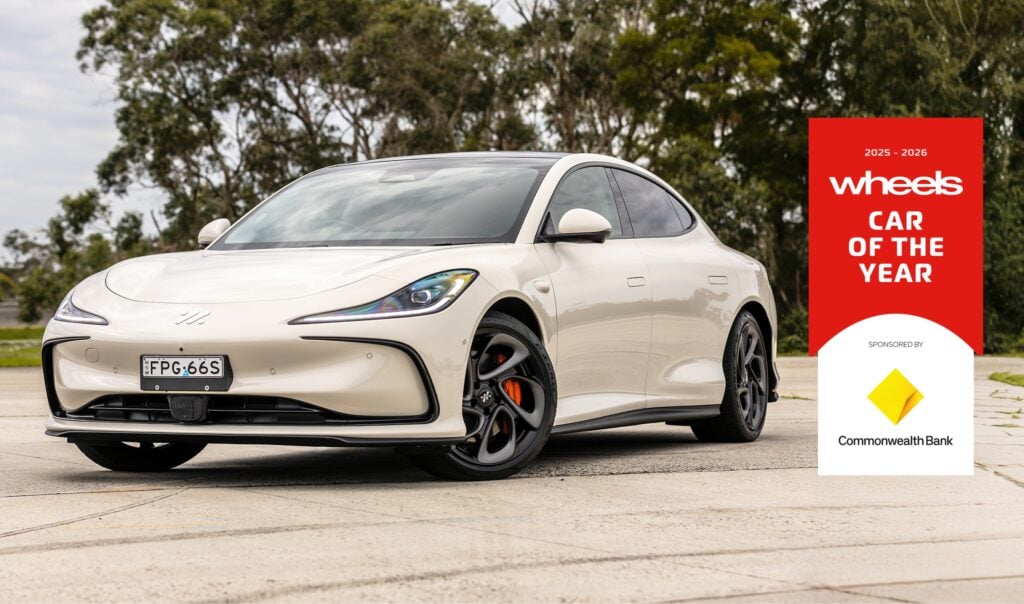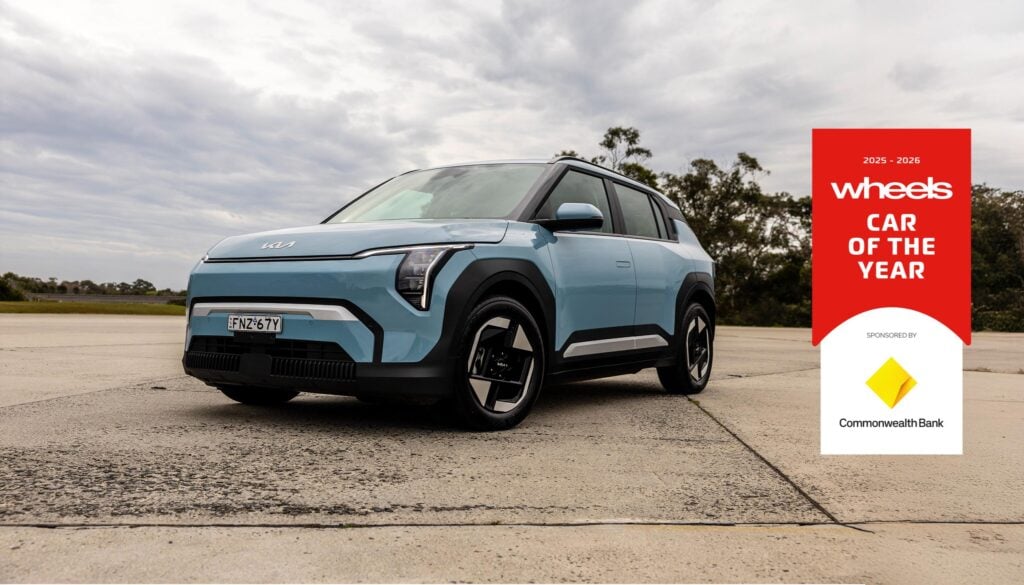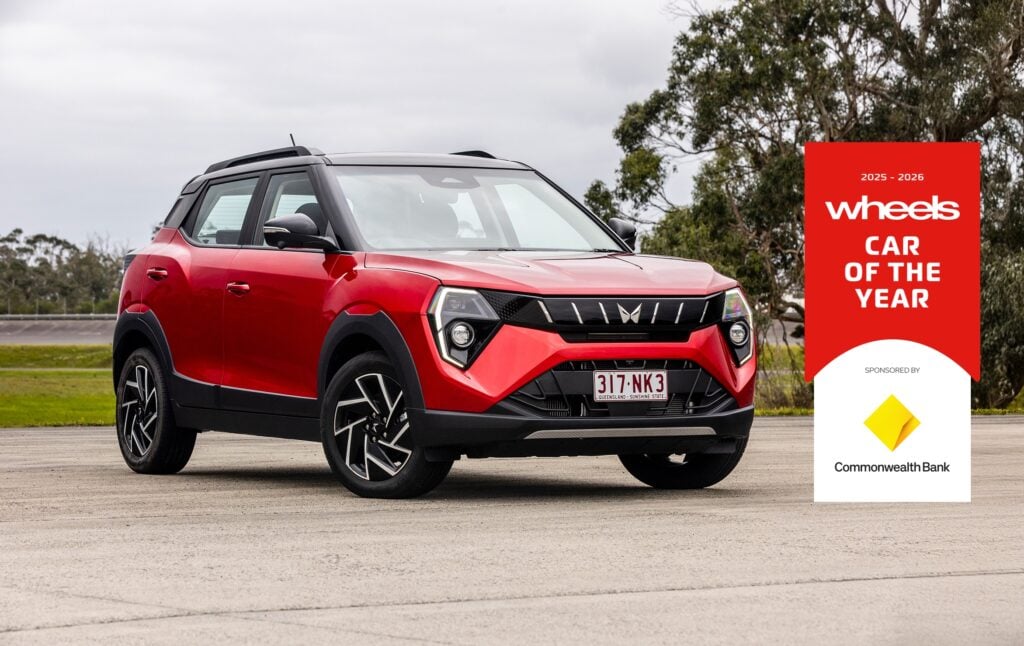Snapshot
- New-generation Ford Everest wins Wheels COTY
- Fordu2019s first COTY since 2004 when it last won with the Territory
- Everest edged out 16 other contenders to win
- Judges praised its value, dynamics and thoughtful design
- Everest is largely designed and engineered in Australia and it feels purpose-built for Aussie buyers
The judges’ quotes were telling. “Really well thought-out. Ford has not just copied best practice in SUVs; it’s established best practice in many areas,” noted one.
“Software has been developed by Australians for our conditions. You can feel the difference, especially in the effectiveness of the ABS calibration on gravel,” said another.
“The chassis stability system’s tuning is outstandingly effective in Australian conditions.” Yep, they absolutely loved the Territory back in the February 2005 issue, marking the last time Ford walked away with the Wheels Car of the Year award.
Fast-forward 18 years and there’s a strange kind of symmetry that marks the Blue Oval’s long-overdue return to the top step of the podium. The Territory benefited from an eligibility change in the rules that allowed it to become the first SUV to win COTY. Prior to 1999, they were categorised as Light Trucks and, as such, denied invitation.
“Everest is far more composed than Ranger through the lane change” – Alex Inwood
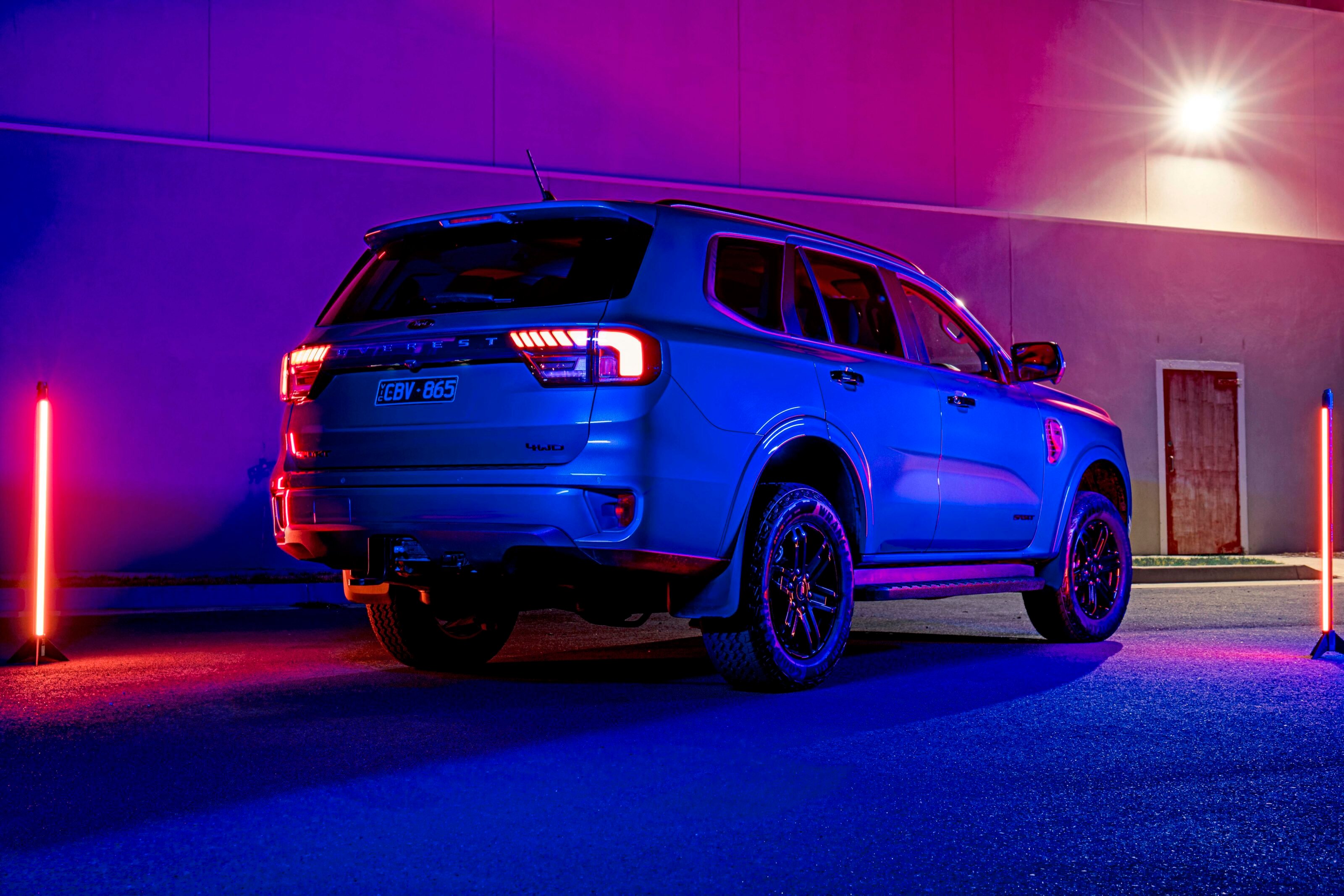
This year, dialling back the dogma to allow hugely popular ladder-framed vehicles to enter the fray has resulted in the Ford Everest carrying home the crown.
Controversial? Maybe. It was clear right from the outset that body-on-frame SUVs and utes arriving on all-terrain tyres would occupy the wooden spoon positions in dynamic tests such as high-speed avoidance and dry braking, and so it proved. Yet every judge climbed from the Everest absolutely blown away at how much this offers for the money. It hasn’t so much raised the bar in this sector as elevated it to a point worthy of its nameplate.
“It feels like a large SUV designed and built to meet the demands of Aussie buyers. And it doesn’t just tick the boxes; it goes above and beyond in virtually every metric,” commented a clearly impressed Inwood.
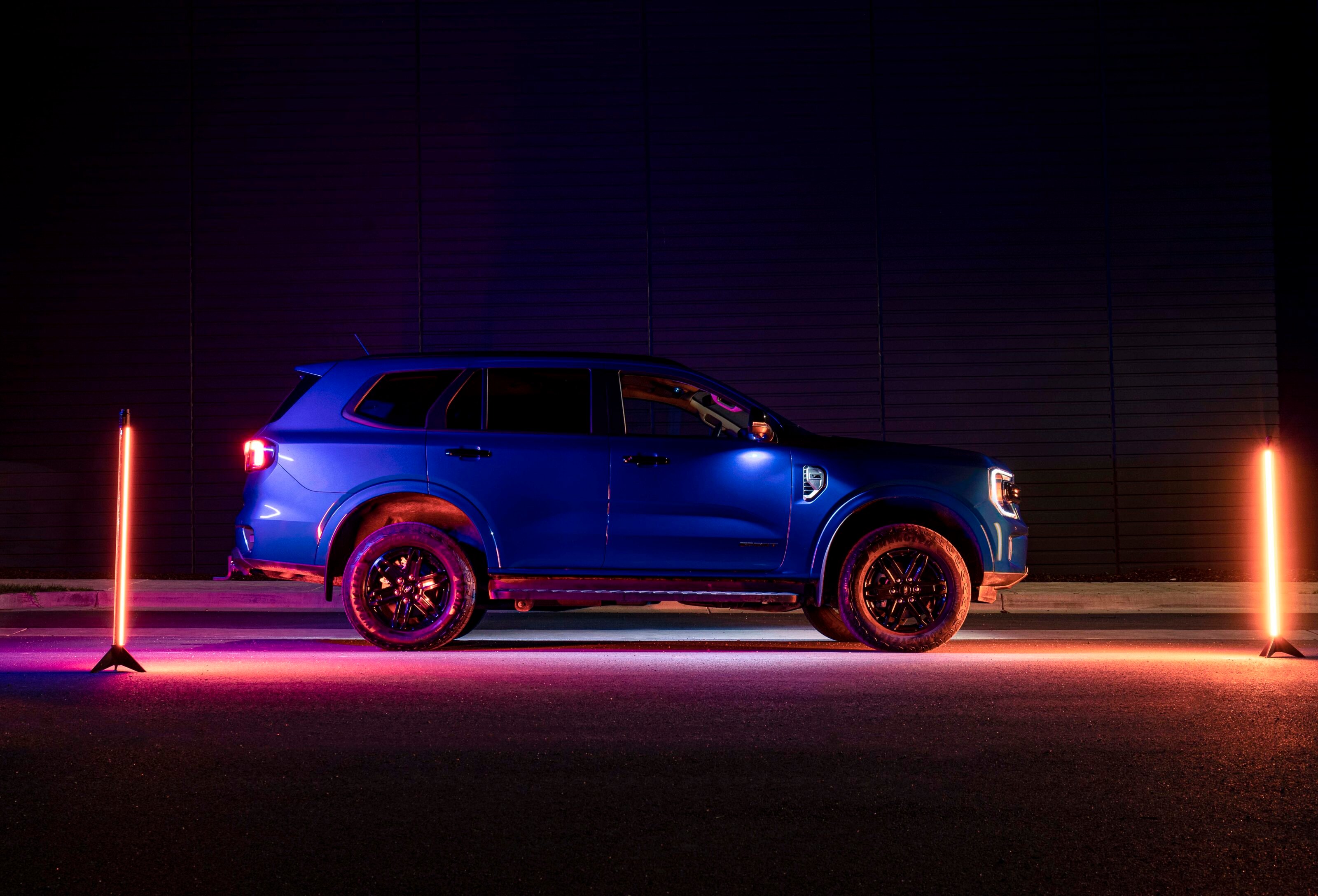
“So far ahead of its segment rivals as a driving experience.” – Jez Spinks
“There’s so much room everywhere, it’s hard to imagine you could run out of space … it’s clear Ford has created Everest with family practicality in mind,” Fisk reckoned.
“The stability control system is inspired on dirt. Seriously. This vehicle has clearly been built by people with a deep understanding of how it’s going to be used by its key market,” said
Thai-built it may be, but we’re the biggest market for this vehicle, the next-largest regions in turn being India, Vietnam, Thailand and Philippines. In other words, some of the most punishing markets on earth where ‘Built Ford Tough’ needs to be not so much a strapline as a basic prerequisite.
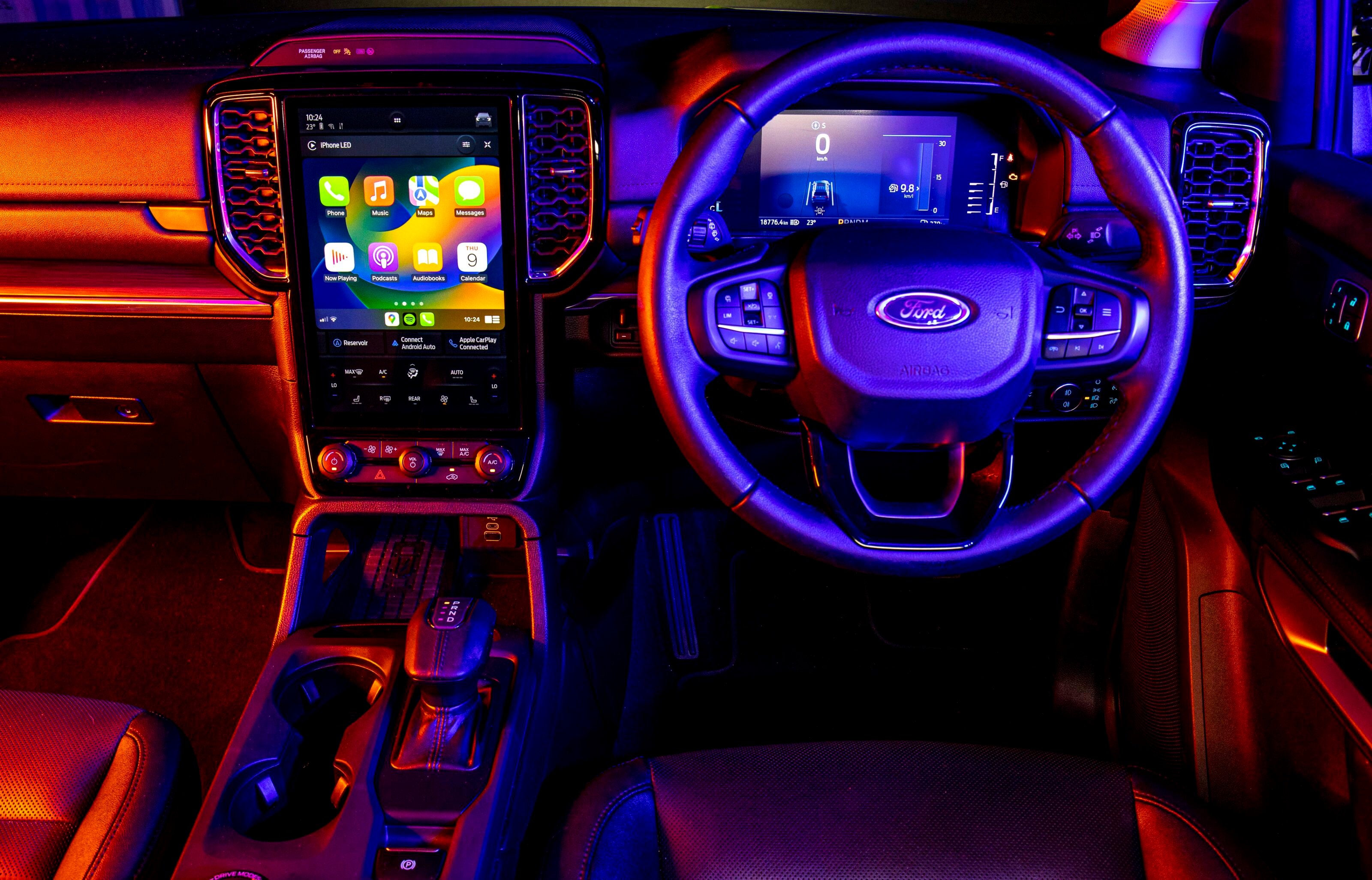
? Any COTY winner needs to ace the criteria
The Everest covered that assignment quite comfortably.
The ground it lost on brake-testing and lane-changing, it clawed back on its event-best dirt performance, its innovative towing tech, its near-genius off-road functionality and its expertly calibrated and easy-to-operate onboard driver assists.
Cabin design and execution also came in for praise, with acres of space, intuitive infotainment including wireless CarPlay and Android Auto, decent materials quality and solid ergonomics.
It drove well too, with both the 2.0-litre bi-turbo and 3.0-litre V6 powerplants getting the clever automatic all-wheel-drive function, unlike the Ranger where you need to step up to the V6 engine in order to net this functionality.
While the V6 diesel might be able to trace its roots back to some point shortly after the industrial revolution gained significant traction, constant updates have made it a standout in the pack.
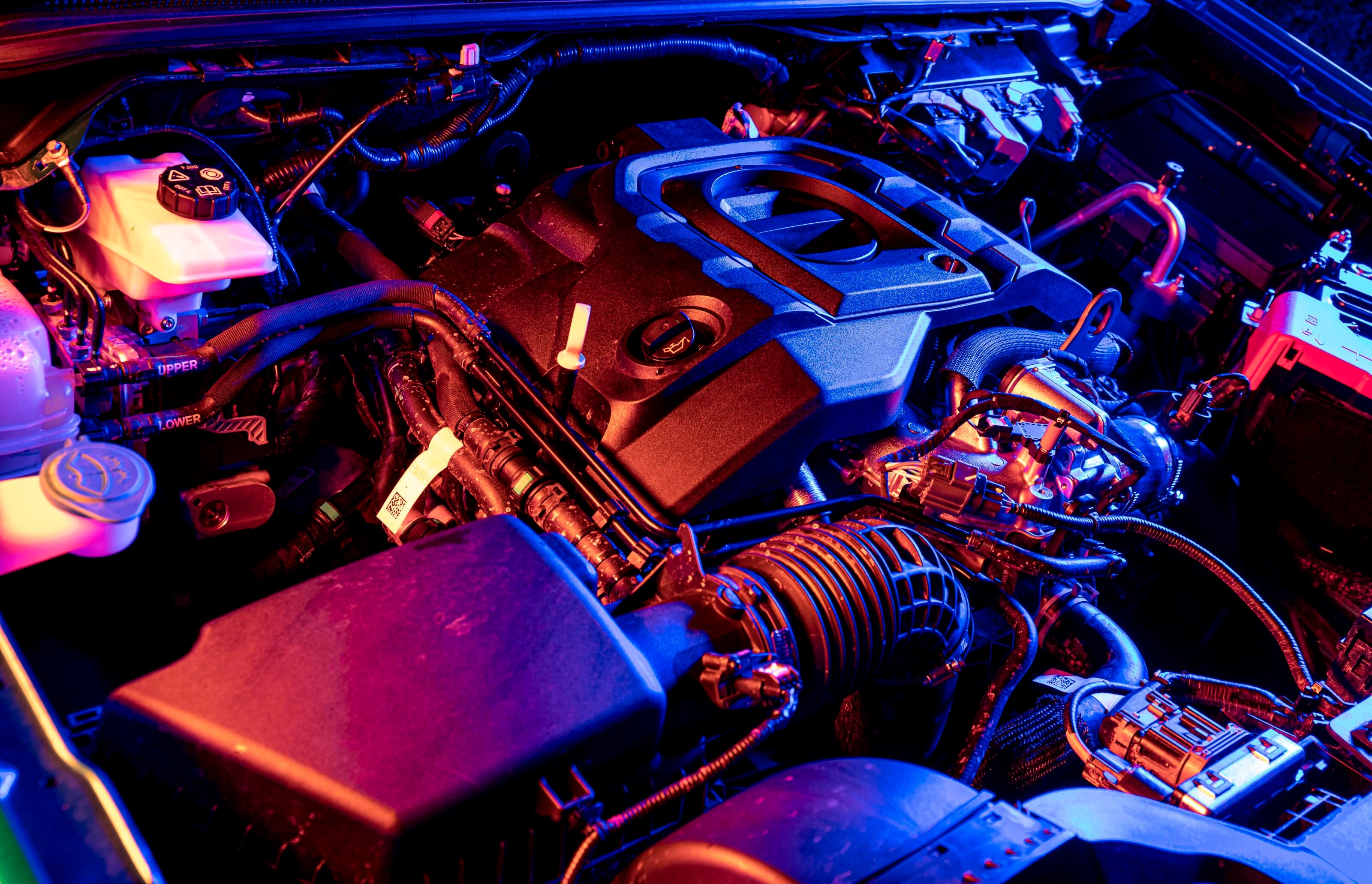
At this juncture, it pays to remind ourselves exactly what that pack comprises.
It’s made up of vehicles like the Toyota Fortuner, launched in 2015. Or the Mitsubishi Pajero Sport, launched in the same year. Alternatively, the Isuzu MU-X, the second-gen model of which arrived in 2021.
Stating that none of these gets close to this new Everest’s predecessor would appear to damn this latest version with but the faintest praise. It’s a low bar – even when you stretch to a Prado, the fourth-gen version of which arrived in 2009, which is closer to the Territory winning COTY than today.
In terms of superiority over its rival set, the Everest is the standout vehicle at this year’s COTY, especially as Ford has latterly ceded the Ranger’s clear air by allowing Volkswagen to piggyback off its engineering chops with the impressive next-gen Amarok.
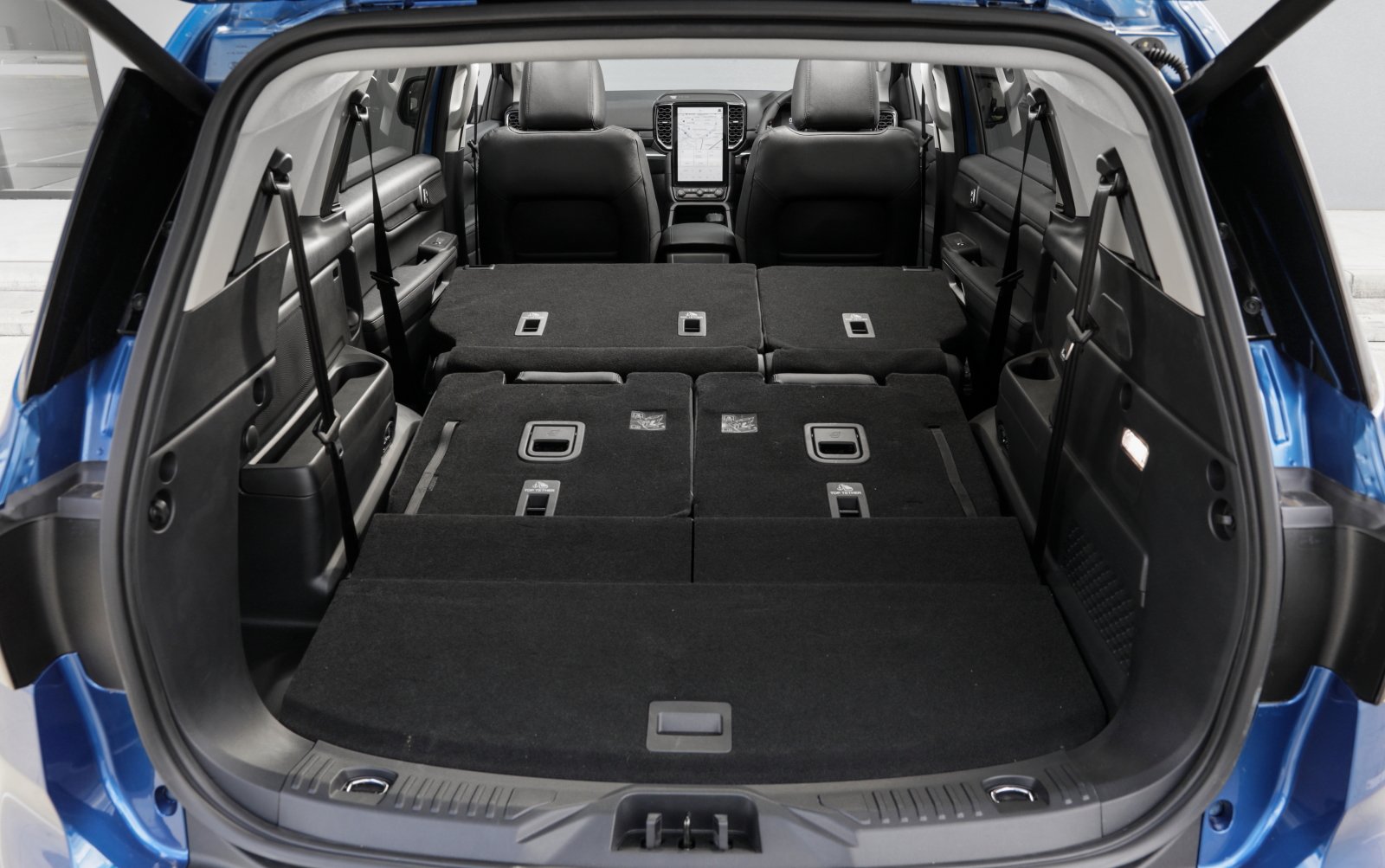
The only Australian-developed wagon in existence was an easy pass through to the final four.
Both myself and Spinks had some reservations about the Everest’s ride quality on poor roads and were curious to see how the rest of the judging panel would take to it, outside of the controlled environment of Vinfast’s proving ground.
Opinions diverged on the 2.0-litre diesel. While all agreed that the new torque converter had eliminated the old version’s problem of hunting up and down the 10-speed ‘box for the right ratio, there were those who felt that the smaller engine was a little shy of the NVH polish they’d like. Others considered it more than acceptable.
Remember that Ford modified the 10R80 transmission back in 2019 to fix once and for all the oil-pump drive gear reliability issues that afflicted early versions of this ‘box.
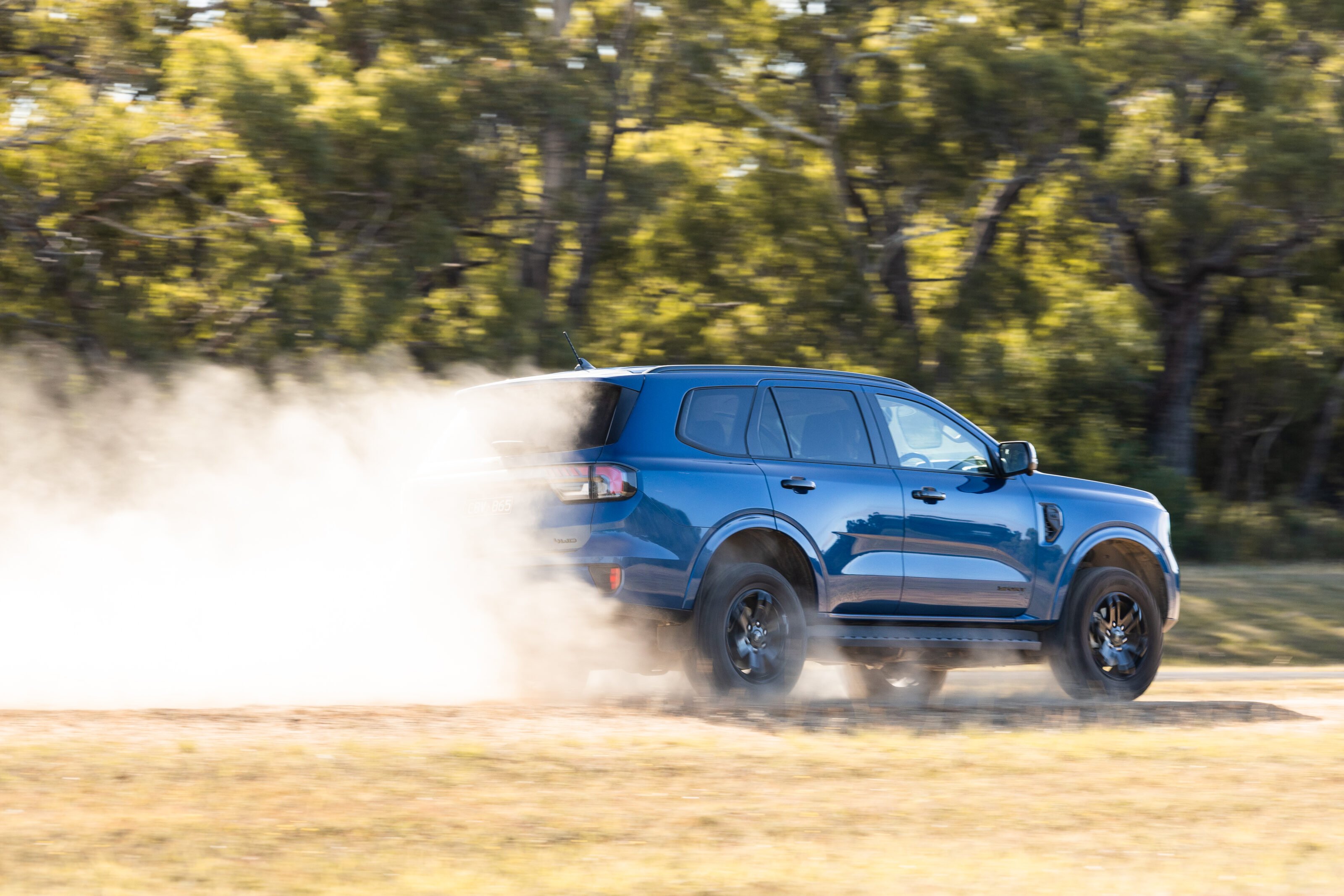
All judges agreed that the six-pot engine was the pick, however, delivering a cultured note – for an oil burner – at the top end and 600Nm on tap to tow up to 3500kg braked. It feels as if it could drag an errant tectonic plate back into line.
“The Everest is predictably excellent on dirt, but miles better than you’d suspect on bitumen” – Andy Enright
The Everest’s smartphone-activated trailer towing light test sequence is just another example of making life easier for owners. As is the blind-spot monitoring that takes the total length of your vehicle, including the trailer, into account. Or the grille-mounted camera that can peer over a sharp off-road crest while the driver can see nothing but a windscreen full of sky. We could go on but you get the point. It’s everyday utility done smarter.

Road testing on the Wheels test loops did highlight a few chinks in the armour.
The rear seat, while spacious and fairly comfortable, lacks lateral support and the shiny leather only exacerbates the slip ’n’ slide through tight corners.
Tyre pressure monitoring is a rare equipment miss in Sport trim and seems a no-brainer for a vehicle with such off-road ability. You’d need to spring for the range-topping Platinum to net TPMS, along with features such as a B&O stereo, matrix headlights and debatably desirable 21-inch alloys.
The Everest feels large on twisty roads and the no-cost option all-terrain tyres don’t relish rapid changes of direction. Once you tune into the Everest’s cadence and give the body a beat to take a set, there’s enough composure and outright grip to inspire confidence, especially in the sort of inclement weather we encountered while testing.
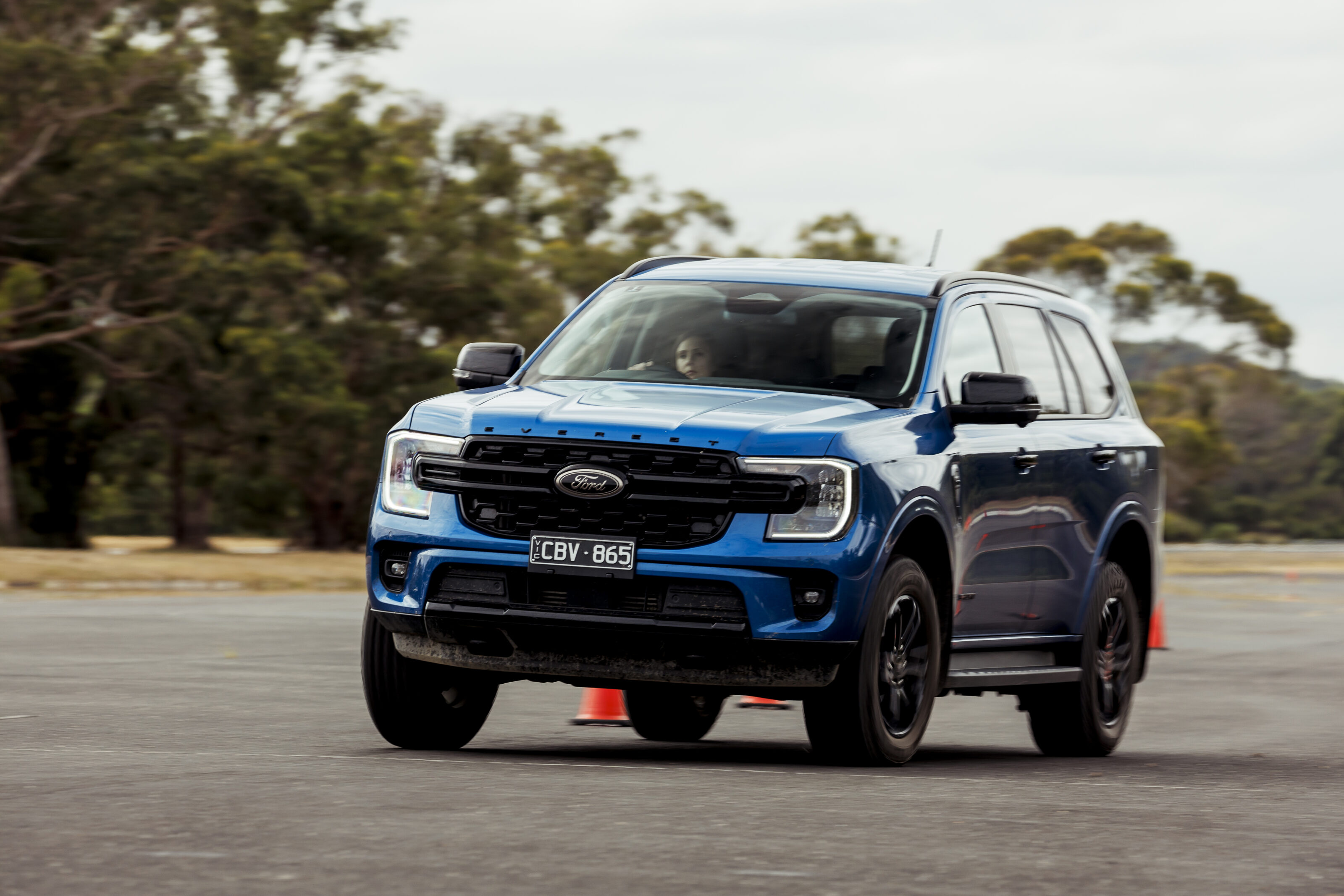
It’s probably fair to say that the difference in ride quality between a leaf-sprung Ranger and a coil-sprung Everest is noticeable but possibly not as great as some might have hoped; probably more of a tribute to the Ranger engineering team than a slur on Everest chassis development.
Nevertheless, there is some head toss when negotiating drop kerbs at an angle that is part and parcel of a tall, body-on-frame vehicle. It’s worth noting at this point that our Sport V6 was fitted with 18-inch alloys to complement the no-cost option A/T tyres. Go for the road tyres and your Everest Sport rolls on 20s with a less malleable sidewall. We’d happily stick with the 18s.
The best part about the Everest is that it really does feel engineered for Aussie conditions. Take it anywhere. Forty-degree day in the bush? The Ford’s air-conditioning is powerful enough to make you feel like an underdressed Shackleton.
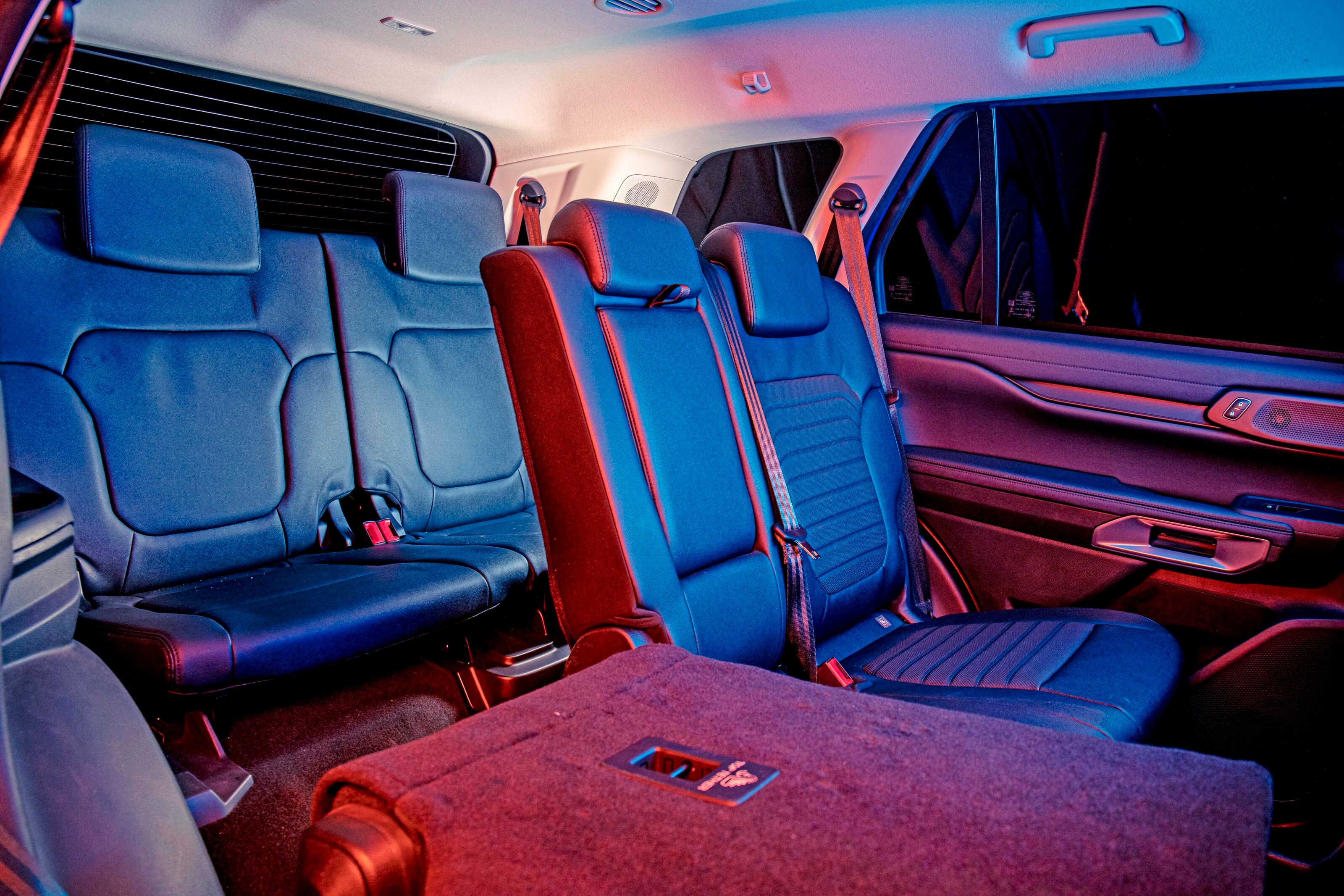
Its 800mm wading depth will see it through most fords, the proper low-range transfer case and the rear diff-lock enable it to clamber up anything that seems vaguely categorised as motorable, while an 80-litre fuel tank gives it a long-legged 900km cruising range between fills.
“Even the Trend model is stacked with wireless Apple CarPlay & Android Auto, LED lights, keyless entry and power tailgate” – Alex Affat
There’s even a slot next to the drinks holders front and rear to park a portion of fries if you’ve nipped into the drive-thru at Maccas. It feels sturdy too. “Gives the sense that after 500,000km it would look and feel exactly the same,” said Campbell.
One detail really underscores how Ford has engineered the Everest for its target market. We live in a hot country. Like everywhere else, cold air sinks and hot air rises.
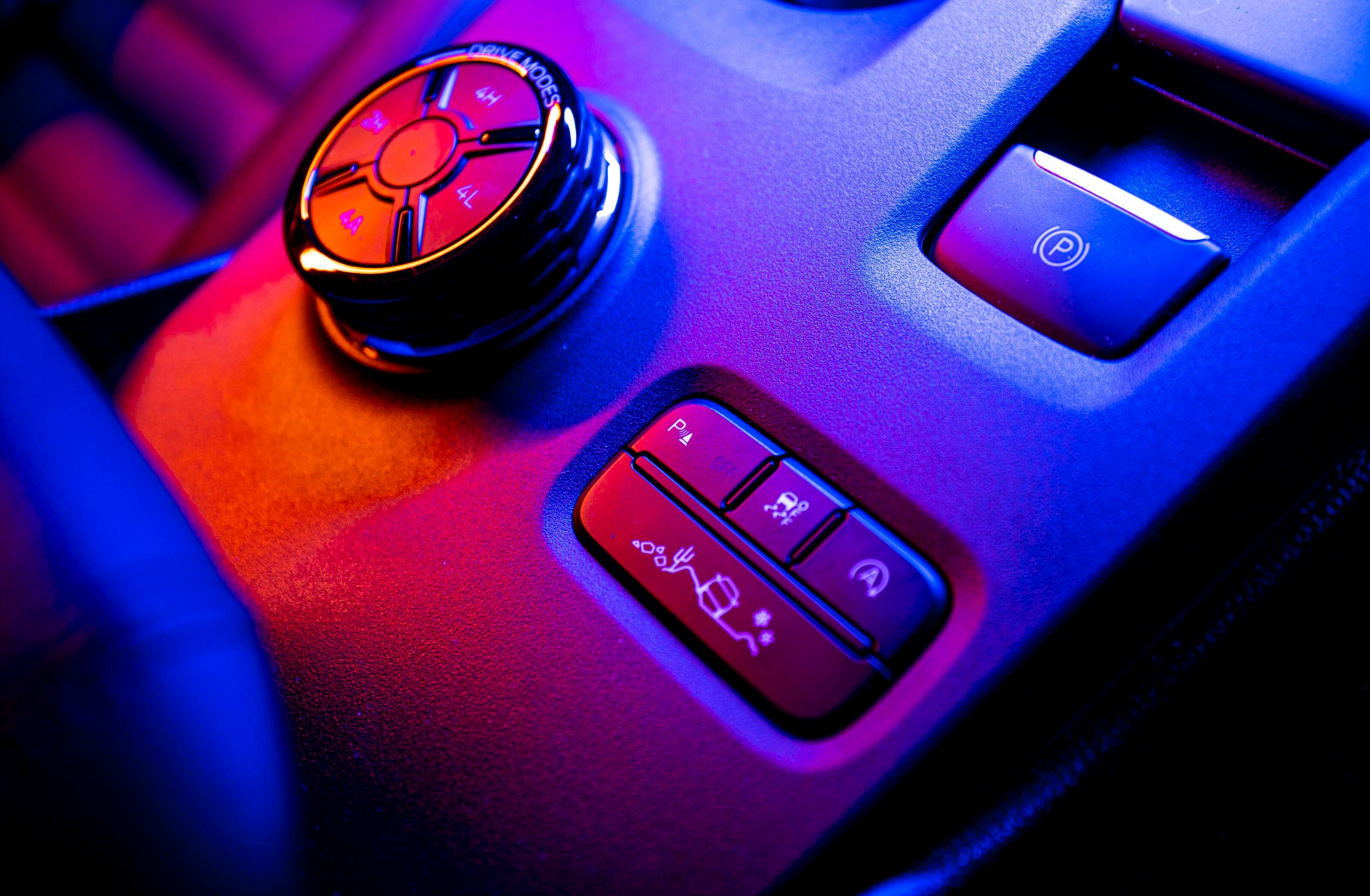
Ford has gone to the considerable engineering effort of routing the rear air conditioning plumbing along the roof of the Everest to drench rear-seat occupants in a waterfall of cooling air – while its rivals feebly fire cold air at passengers’ shins.
Put simply, the Everest couldn’t be a great deal better suited to how Aussies typically use their vehicles.
Just as a softly sprung Citroën feels perfect on a French rural route, a 7 Series sedan is imperious on an autobahn, a flyweight Lotus an ideal fit along an English country lane and a drop-top Mustang the perfect partner on the Pacific Coast Highway, the Everest revels on home turf.
There will be some who might look at a two-tonne truck and wonder whether we’re being particularly progressive in our choice here. Ford has tried to sell a very good utility vehicle that’s half a metre lower and 500kg lighter in this country and very few formed a queue for Mondeo wagons, so the point may well be moot.
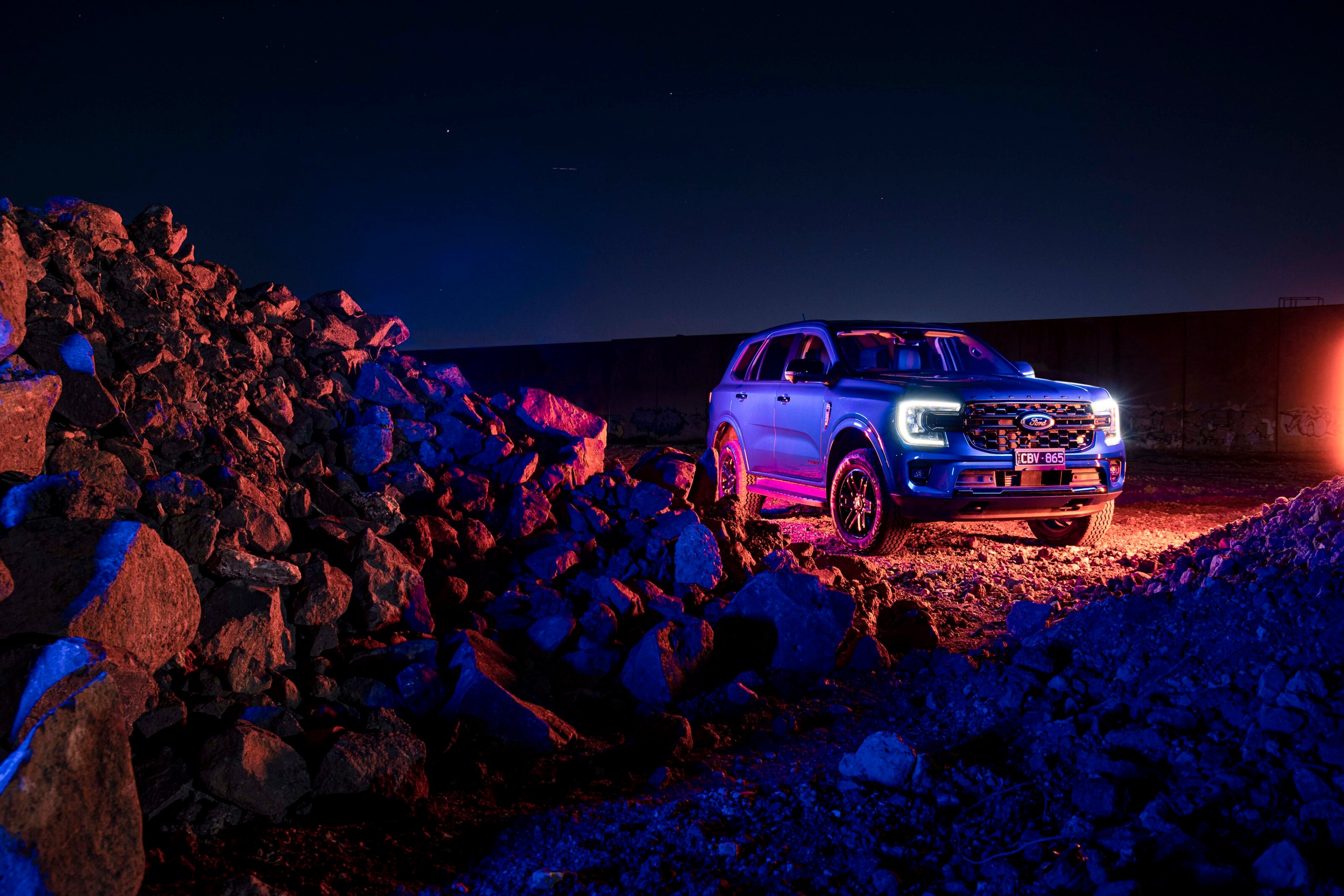
The Everest is clearly relevant and laser-focused on buyers’ needs right now – and that’s what counts
In the final tot-up, the Everest tallied a decisive majority on the scorecards. It’s a thoroughly impressive vehicle that offers so much capability and is packed with such ingenuity at such a keen price that it’s a clear winner for 2023. Designed in Australia, by Australians, for Australians.
Turns out there’s something to be said for that after all.
| Ford Everest | Trend 2.0L bi-turbo | Sport V6 |
|---|---|---|
| Price | $65,290 | $69,090 |
| Body | Seven-seat, five-door body-on-frame SUV | Seven-seat, five-door body-on-frame SUV |
| Drive | All-wheel drive | All-wheel drive |
| Drivetrain | 2.0-litre 4cyl bi-turbo diesel | 3.0-litre V6 turbo diesel |
| Power | 154kW @ 3750rpm | 184kW @ 3250rpm |
| Torque | 500Nm @ 1750-2000rpm | 600Nm @ 1750-2250rpm |
| Transmission | 10-speed automatic | 10-speed automatic |
| Fuel consumption | 7.2L/100km | 8.5L/100km |
| Kerb weight | 2383kg | 2454kg |
| Towing capacity | 3500kg | 3500kg |
| 0-100 | 10.0sec (estimate) | 9.0sec (estimate) |
| L/W/H/W-B | 4914/2207/1842/2900mm | 4914/2207/1842/2900mm |
| Boot space | 239/898/1823L | 239/898/1823L |
| Warrantyu00a0 | 5yr/unlimited km | 5yr/unlimited km |
| Safety rating | 5 star ANCAP (2022) | 5 star ANCAP (2022) |
MORE READING
Now that you’re done reading our COTY 2023 verdict, you should go back to catch up on anything you might’ve missed. Check out the links below, or find it all at our COTY page.
A NOTE ON CRITERIA
Always a controversial topic. It’s linked above, but if you need a refresher on how we define eligibility and our testing criteria, the What’s new for 2023? story is where you need to be.
We recommend
-
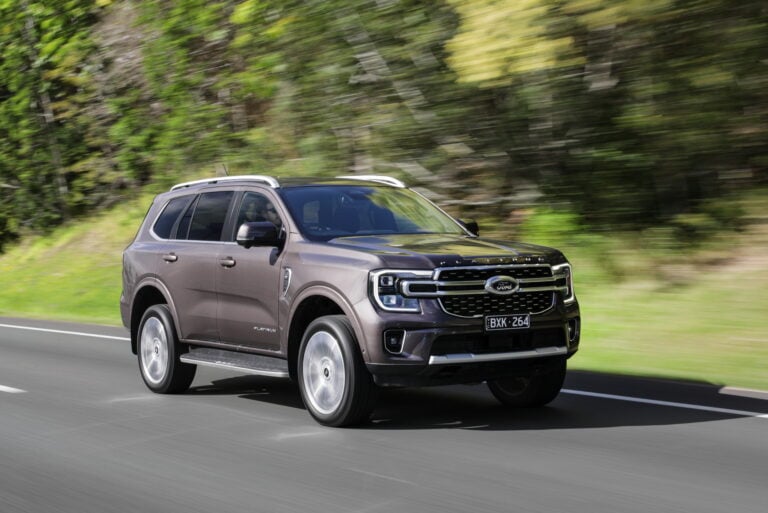 News
News2023 Ford Everest Australian pricing and features
The next-generation 2023 Ford Everest has landed in Australia, with four grades and a V6 diesel on offer
-
 News
NewsNew car calendar 2026: All the new cars coming to Australia next year
Here’s the WhichCar by Wheels guide to all the new cars that will launch in Australia in 2026. Check back in regularly for updates...




